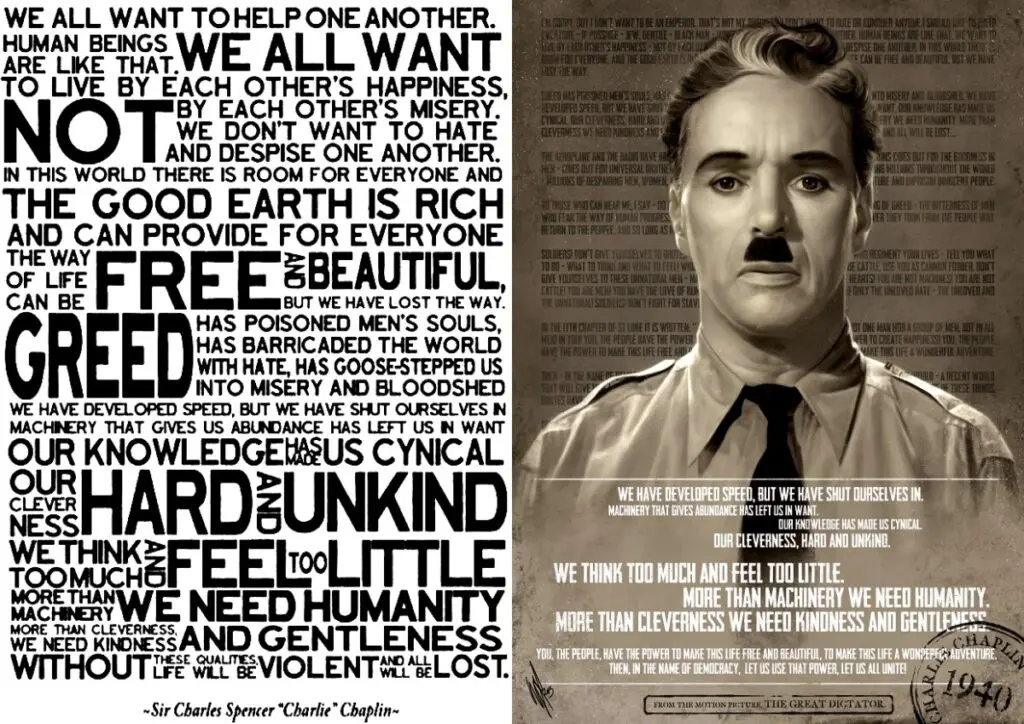Amnesty International goals are derived from its strategic plan. It emphasises strengthening freedom of expression and association, securing the right to peaceful assembly, promoting gender and racial justice, and tackling climate justice, among other goals.
The key goals are:
- Individual Liberty.
- Fair Trials.
- To End Torture.
- To Abolish the Death Penalty.
- Rights for Refugees.
What does Amnesty International do? It is a global movement dedicated to protecting and ensuring human rights for all individuals. With more than 10 million members worldwide, the organisation takes on a variety of missions and campaigns. It advocates for social justice, equality, and the basic rights of all people.
By researching, reporting, and actively campaigning on human rights issues, Amnesty International aims to create a world where everyone enjoys their rights without discrimination or persecution.
Amnesty International also plays an important role in influencing legal frameworks. And it engages governments to enforce laws that protect and uphold human rights. Through a combination of research, campaigns, and public awareness efforts, the organisation seeks to effect change on a global scale.

- Key Takeaways
- Amnesty International goals are advocating for human rights through research, campaigns, and public awareness.
- The organisation’s strategic plan focuses on key priorities such as freedom of expression, gender and racial justice, and climate justice.
- Amnesty International seeks to influence legal frameworks and governments to ensure the protection and upholding of human rights worldwide.
Amnesty International Goals
Amnesty International is an international non-governmental organisation formed in London on May 28, 1961. British lawyer Peter Benenson founded the organisation to launch an appeal in the United Kingdom for the release of prisoners of conscience worldwide. The organisation’s mission expanded as it recognised the need to document prisoners’ cases and provide support for their rights.
Amnesty International goals and its primary objective is the publicising of violations committed by governments and other entities regarding rights recognised in the Universal Declaration of Human Rights (1948). In particular, the organisation focuses on:
- freedom of speech and conscience, and
- the right against torture.
During the 1990s and early 2000s, Amnesty International broadened its mission to encompass issues such as:
- reproductive freedom,
- corporate responsibility for human rights violations, and
- ensuring human rights in national security policies following the 2001 September 11 tragedy.
These expanded goals illustrate Amnesty International’s commitment to addressing various aspects of human rights across different sectors and situations.
Amnesty International has acknowledged the need to adapt to a changing global landscape marked by uncertainty, climate crises, and the increased deployment of digital technologies that can amplify inequality and injustice. This has led to a focus on developing a broad-based global movement with local relevance to tackle these emerging challenges.
Throughout its history, Amnesty International has been a prominent voice for human rights worldwide. It fights for the rights of individuals and communities who face oppression and injustice. The organisation’s continuous evolution demonstrates its unwavering dedication to promoting human rights in a constantly changing world.
Amnesty International’s Vision
World Free of Injustice
Amnesty International’s strategy envisions a world free of injustice, where every individual has the right to live with dignity and freedom. It creates an environment where human rights are understood, respected, and protected. It works to combat human rights abuses. And focusies on freedom of expression and civic space, equality, non-discrimination and securing the right to peaceful assembly for all.
Human Rights Protection
The organisation strives to protect human rights by engaging in research, campaigning, advocacy, and raising public awareness. Amnesty International is known for its impartial, independent, and democratic approach, which allows it to act for each individual victim, regardless of background or political affiliations.
To achieve its goals, it collaborates with a global community of human rights defenders, embracing the principles of international solidarity and mutual respect. Amnesty International cooperates closely with human rights defenders. This empowerment helps it work towards the vision of a world where human rights are enjoyed by everyone, without exception.
Key Amnesty International Goals
Individual Liberty
Amnesty International strives to strengthen freedom of expression and association, protecting individuals’ rights to voice their opinions and assemble peacefully. By promoting human rights education and empowering people to defend their rights, Amnesty International works towards a world where individual liberty is upheld and respected.
Fair Trials
Amnesty International seeks to ensure that every person accused of a crime receives a fair and just trial. They advocate for judicial systems that guarantee the right to council, the right to present a defense and the right to impartial examination of all evidence presented. By pushing for legislative reforms and raising awareness of existing injustices, the organisation works towards achieving this goal.
To End Torture
Amnesty International works tirelessly to end the use of torture in all its forms, insisting on the absolute prohibition of torture under international law. They document instances of torture worldwide, exerting pressure on governments to implement policies and practices that eradicate this inhumane treatment.
To Abolish the Death Penalty
The organisation actively opposes the death penalty in all cases. They argue that this punishment is a violation of the right to life and prohibition of torture. Through research, lobbying, and public campaigns, Amnesty International seeks to persuade governments to abolish the death penalty globally.
Rights for Refugees
Amnesty International advocates for the rights of refugees, asylum seekers, and migrants. They work to ensure that countries adhere to international obligations, such as providing protection to those fleeing persecution and respecting the principle of non-refoulement. The organisation calls on governments to develop policies that uphold the dignity and rights of all displaced persons.
The Global Movement: Research and Campaign Methods
Investigation
Amnesty International conducts thorough investigations to gather evidence on human rights abuses worldwide. Their research uncovers violations and lays the groundwork for effective campaigns. Investigative teams collect data, interview victims and witnesses, and assess critical information to document human rights abuses accurately.
Mobilisation
At the core of Amnesty International’s work is the strength of its global movement. Through grassroots mobilisation, they rallied millions of people to support human rights causes, empowering local communities to act and amplify their efforts. Mobilisation tactics may involve public demonstrations, online campaigns, and partnerships with other organisations, all aimed at creating a groundswell of support and fostering a culture of human rights activism.
Legal Framework and Influence
International Human Rights Laws
Amnesty International’s work is heavily based on the principles of international human rights laws. It strives to hold governments and other entities accountable for their responsibilities in upholding these rights. As a result, Amnesty International exposes human rights abuses and calls for policy changes in accordance with the Universal Declaration of Human Rights and other human rights treaties and conventions. Its work encompasses a wide range of issues, such as freedom of expression, the right to a fair trial, and protection from torture or ill-treatment.
Influencing Policy
To create lasting change, Amnesty International aims to influence the policies of governments, international institutions, and corporations. It uses a combination of research and grassroots activism to bring human rights issues to the forefront of public discourse. By amplifying the voices of affected communities and individuals, it seeks to challenge power structures and push for systemic changes.
This includes advocating for protective legislation, demanding accountability for human rights violations. Also, promoting awareness of the tools and frameworks available for individuals to claim their rights.
The Work to Protect Human Rights: Controversial and Challenged
Amnesty International is controversial and has been challenged more than once. But it is renowned for its work in promoting and defending human rights. They have, at times, cast doubt on the organisation’s objectivity and credibility.
One of the most notable challenges Amnesty International has faced is the accusation of an anti-Western bias, specifically against the United States. In 2005, Amnesty International claimed the United States was a human rights offender. The White House, however, rejected these allegations, stating the facts did not support them.
Mistakes in reporting have led to concerns over credibility. Although instances are rare, they undermine the trust that the public, governments, and other organisations have placed in Amnesty International’s research.

Takeaway
Controversies faced by Amnesty International have shaped the way the organisation operates and how it is perceived. To maintain its position and authority in human rights promotion, the organisation must address these concerns and strive for transparency and accuracy in all its endeavors.
Frequently Asked Questions
What is the role of Amnesty International in human rights?
Amnesty International is a movement that campaigns for human rights. Their primary role is to work independently and impartially to promote respect for all the human rights set out in the universal declaration of human rights. They focus on discrimination, freedom of expression, police brutality, refugees, and torture.
How was Amnesty International established?
Amnesty International was founded in 1961 by British lawyer Peter Benenson after he read about the unjust imprisonment of two Portuguese students for raising a toast to freedom. This inspired Benenson to launch a global campaign called Appeal for Amnesty, which eventually led to the formation of Amnesty International. The organisation has since grown to include millions of members and supporters worldwide.
Is Amnesty International considered an NGO?
Yes, Amnesty International is considered a non-governmental organisation (NGO). It operates independently of governments and political ideologies, focusing on promoting human rights and addressing human rights violations. Its independence allows it to work impartially and confront governments and other organisations that violate human rights.
Where does Amnesty International receive its funding from?
Amnesty International receives its funding primarily from individuals who support the organisation’s work through donations and membership subscriptions. They also receive funds from trusts, foundations, and grants. Amnesty International does not accept funding from governments, political organisations, or businesses, maintaining its independence and impartiality to tackle human rights violations.
Why was Amnesty International USA created?
Amnesty International USA (AIUSA) was created to support the global mission of Amnesty International in the United States. AIUSA engages in advocacy, lobbying, and public education to raise awareness of human rights issues and promote the values of the organisation. By focusing on domestic issues and engaging U.S.-based supporters, AIUSA strengthens the overall impact of Amnesty International’s work to protect human rights worldwide.
Why not Join Us
If you enjoyed this article, we would like to offer you two gifts – our Starter Pack of 4 James King’s books and our Weekly Digest, which you can receive by email.

